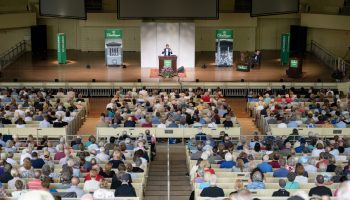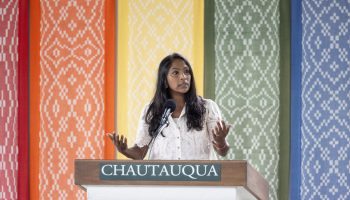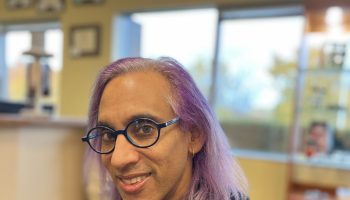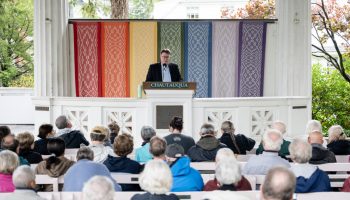In the few days preceding Tracey L. Meares’ lecture, two black men, Philando Castile, 32, and Alton Sterling, 37, were shot and killed by police officers in Falcon Heights, Minnesota, and Baton Rouge, Louisiana, respectively. On Thursday, a protest in Dallas ended in the deaths of five police officers, dead at the hands of a sniper.
At the time, Meares, Walton Hale Hamilton Professor of Law and director of the Justice Collaboratory at Yale University, had been refining her speech for the 12th Annual Robert H. Jackson Lecture on the Supreme Court of the United States at 4 p.m. Monday in the Hall of Philosophy.
Her subject of concern — policing and its reform in the 21st century — had once again punctured the American conscience.
“This topic and issue, one of the most pressing issues of governance in our time, has become that much more pressing,” Meares said. “And those incidents are really just flash points of institutional breakdowns.”
Meares is not the traditional choice for the Jackson lecture. She’s not a student of the Supreme Court, nor of the court as an institution. She concentrates on a particular branch of constitutional law: criminal procedure.
“My concern right now is a topic that, unfortunately, I think the Supreme Court as an institution has either not paid adequate attention to, or the kind of attention that one would hope, which is a social psychology of how people understand the fairness of the system and its dynamics,” Meares said.
During a keynote address at the University of Chicago Law School in November 2015 titled “Against Public Safety and for Public Security,” Meares spoke of her December 2014 appointment by President Barack Obama to his Task Force on 21st Century Policing, created in the wake of the shooting death of Michael Brown in Ferguson, Missouri, and the death of Eric Garner at the hands of New York City police.
At the event, Meares said police are now being more scrutinized than ever be`fore, noting a conversation between a police officer and James Comey, director of the FBI. The officer said he had felt “undersized,” choosing not to leave his vehicle because of the looming suspicion that someone might film him with his or her cellphone.
In response, Comey, who had been discussing reasons behind a national spike in homicides, said, “I do have a strong sense that some part of the explanation is a chill wind, blowing through American law enforcement over the last year. That wind is surely changing behavior.”
Historically, Meares said, law enforcement believed they had little importance when it came to the fluctuation of crime rates. But people had fabricated that linear story, what she called the “public safety narrative,” a misconstrued evaluation of police efficacy.
Meares said she also plans to touch upon the recent Supreme Court case Utah v. Strieff, where the Court ruled 5-3 in favor of Utah. Edward Strieff had been detained by narcotics detective Douglas Fackrell. Strieff then proceeded to give his identification to the Fackrell, who in the process discovered a warrant for unpaid parking tickets. During the arrest, Fackrell searched Strieff’s person, finding methamphetamine.
Associate Justice Sonia Sotomayor’s dissent of the case’s ruling as a violation of the Fourth Amendment will be an important emphasis of discussion for Meares.
“Her dissent is considered a really powerful statement of what’s wrong with a key institution of criminal justice that is policing,” Meares said. “But also, one could say, it’s an observation of what’s wrong with a key institution that is charged in part with overseeing another key institution, that being the Supreme Court.”
Meares, conscious of Chautauqua’s informed audience, plans to speak to Chautauquans as people she believes can make a difference.
“I know this,” Meares said. “I know that this is not going to change, not until all of us decide to take this seriously.”





